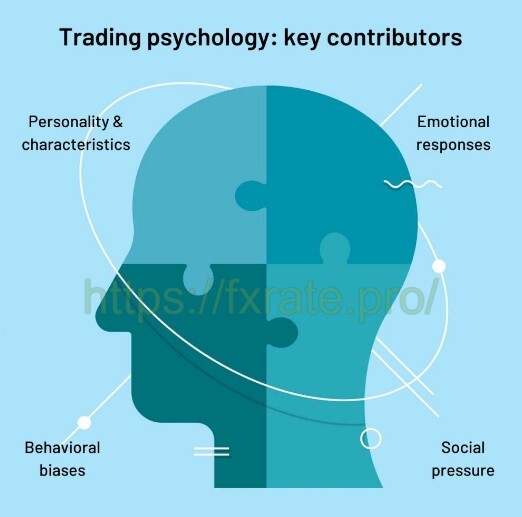Psychology of trading: how emotions affect results and success

Trading psychology is a key factor determining success in the financial markets. Many believe that profitable trading depends solely on knowledge and skills, but experienced traders realize that control over emotions and psychological state are of greater importance. Strategy, indicators and technical analysis help to form trading decisions, but it is psychology that influences their realization.
In this article we will look at the main psychological problems faced by traders, their impact on trading results, and ways to improve psychological state to achieve success.
What is trading psychology?
Trading psychology is the trader’s emotional and mental reactions to market events. Reactions to market volatility, price changes and news reflect a trader’s personal qualities and level of self-control. The ability to manage these reactions can determine how successful a trade will be.
Traders face different situations: sudden price changes, market volatility, losses and gains. At these stages, not only the ability to analyze is important, but also to react correctly emotionally to avoid mistakes caused by fear or greed.
How do emotions affect trading?
Trading involves risks and emotions, and some of them can be real obstacles to success.
- Fear
Fear is one of the most destructive states for a trader. It can manifest itself as fear of capital loss or lost profits. For example, when prices fall, traders may close positions early, fearing further losses, although objectively the stock could recover. - Greed
Greed leads to rash and risky actions. Traders seeking quick profits often open too large positions or neglect risk management. This can lead to large losses, especially in case of sudden changes in the market. - Uncertainty
Traders who have doubts may miss favorable opportunities. Indecision prevents trades from being made at the right time, which reduces the chances of making a profit. - FOMO (Fear of Missing Out)
This fear of missing out on a profitable trade causes traders to open trades at the peak of volatility, when the price of an asset has already reached its maximum. An example is the situation with Bitcoin, when many investors bought the asset at its peak, fearing that it would continue to rise.
How to improve trading psychology?
To achieve consistent success in the market, it is important not only to develop technical skills, but also to work on your psychology. Here are some tips to help you improve your emotional control in trading.
- Take a personality test
Identifying your strengths and weaknesses is the first step to improvement. Find out what emotions and reactions prevent you from making the right decisions. This will help you develop a strategy that takes into account your psychological characteristics. - Make a clear trading plan
A trading plan should include rules for opening and closing trades as well as risk management strategies. Planning allows you to minimize emotional decisions and maintain control of the situation, even if the market moves unexpectedly. - Be disciplined
Discipline in trading is the key to success. Try not to give in to emotions and act according to the developed strategy, even if the situation raises doubts. - React correctly to wins and losses
Success and failures are an inevitable part of trading. It is important to accept both gains and losses correctly. Do not allow success to cause overconfidence and failure to cause panic. - Don’t overload your portfolio
Diversification can protect against losses, but too many assets in a portfolio increases the emotional burden. Beginning traders should focus on a few assets to better control their trades. - Understand the risks of leverage
Leverage can significantly increase both profits and losses. Beginners should use it with caution, as mistakes can lead to a complete loss of capital. - Keep a trading diary
Record the results of trades, analyze your successes and mistakes. This will help you understand what factors (including emotional ones) influence your decision-making and improve your trading psychology.
Conclusion
Trading psychology is the most important aspect of successful trading. Controlling emotions such as fear, greed and uncertainty can significantly improve trading results. Regardless of the level of knowledge and experience, a successful trader must be able to manage their emotional reactions, maintain discipline and constantly improve their trading strategy.
Trading is a balance between emotion and reason, and the ability to find this balance will help you become a successful and stable trader in any market.